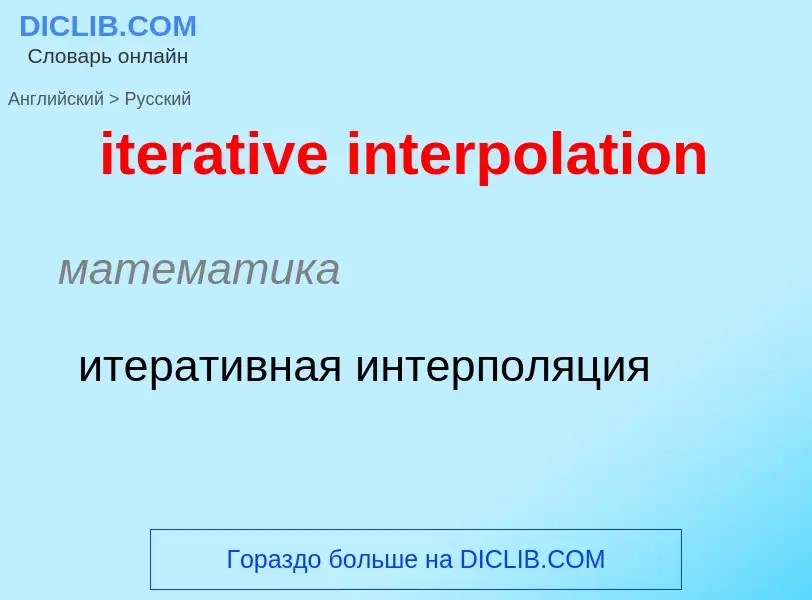Translation and analysis of words by ChatGPT artificial intelligence
On this page you can get a detailed analysis of a word or phrase, produced by the best artificial intelligence technology to date:
- how the word is used
- frequency of use
- it is used more often in oral or written speech
- word translation options
- usage examples (several phrases with translation)
- etymology
iterative interpolation - translation to russian
математика
итеративная интерполяция
Wikipedia
In mathematical logic, Craig's interpolation theorem is a result about the relationship between different logical theories. Roughly stated, the theorem says that if a formula φ implies a formula ψ, and the two have at least one atomic variable symbol in common, then there is a formula ρ, called an interpolant, such that every non-logical symbol in ρ occurs both in φ and ψ, φ implies ρ, and ρ implies ψ. The theorem was first proved for first-order logic by William Craig in 1957. Variants of the theorem hold for other logics, such as propositional logic. A stronger form of Craig's interpolation theorem for first-order logic was proved by Roger Lyndon in 1959; the overall result is sometimes called the Craig–Lyndon theorem.




